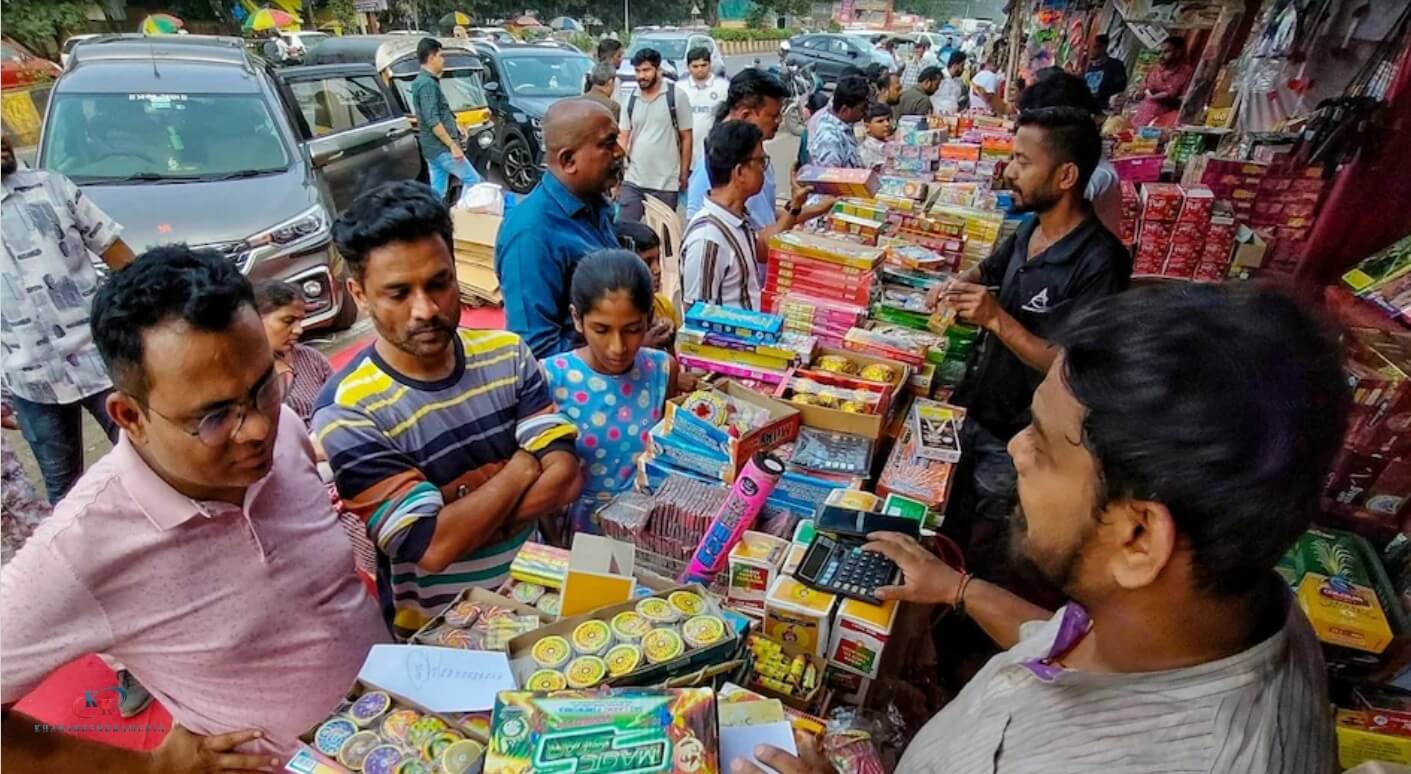
As the sparkle of gold and silver lights up markets across India on this auspicious Dhanteras—the kickoff to Diwali festivities—Kerala-based jewelry powerhouse Malabar Gold & Diamonds finds itself in the eye of a fierce social media hurricane. Boycott calls are ringing loud, with shoppers vowing to steer clear of the brand’s glittering showrooms, all thanks to a controversial link to Pakistan that’s refusing to fade away. It’s like a dark cloud over what should be a golden day, where tradition meets commerce in a dazzling embrace.
The Spark: A Pakistani Influencer’s Bite at India’s Pride
The trouble kicked off back in September, but it’s roaring back with a vengeance just as families flock to buy coins and chains for prosperity. Malabar Gold roped in London-based Pakistani Instagram sensation Alishba Khalid—with her 137,000 followers and a flair for fashion—to hype up the grand opening of their Birmingham showroom. Bollywood diva Kareena Kapoor Khan was the star guest, but Khalid stole the wrong kind of spotlight.
Why? Turns out, this UK-resident Pakistani had a history of sharp-tongued posts slamming India’s military might. Flashback to April 22, 2025: A gruesome terror attack in Pahalgam, Jammu and Kashmir, claimed 26 innocent lives, mostly Hindu tourists, in a brutal assault by Pakistan-backed militants from The Resistance Front (TRF), an offshoot of Lashkar-e-Taiba. India hit back hard with Operation Sindoor on May 7-8, launching precision strikes on nine terror camps in Pakistan and PoK, avenging the bloodshed without escalating into full war. Khalid, however, branded the operation a “cowardly act” on social media, mocking the Indian Army’s resolve and fanning anti-India flames. Netizens didn’t take kindly to a homegrown brand cozying up to someone who disrespected their soldiers.
Screenshots of her old rants went viral faster than Diwali crackers. “How can an Indian company promote someone who sides with our enemies?” fumed one X user, while another quipped, “Their gold might shine, but their loyalty? Tarnished.” The hashtag #BoycottMalabarGold exploded, with posts accusing the jeweler of being a “Pakistan sympathizer.”
Malabar’s Defense: Caught in the Crossfire of Ignorance
Malabar Gold isn’t taking this lying down. In a frantic bid to polish its image, the company clarified that Khalid was hired through a third-party UK agency, JAB Studios, for a one-off gig—way before the Pahalgam horrors unfolded. “We had no clue about her background or those inflammatory posts,” they insisted in court filings. The partnership? Axed immediately after the backlash hit. But the damage was done, especially with festive sales hanging in the balance.
Desperate to stem the tide, Malabar dashed to the Bombay High Court last month, slapping down a list of 442 URLs brimming with what they called “defamatory drivel.” Justice Sandeep Marne didn’t mince words: He slapped an ad-interim injunction on Meta, Google, and X, ordering the scrub of posts labeling the brand a Pakistan backer and banning fresh smears. “This isn’t just business; it’s about protecting our reputation from malicious mudslinging,” a company spokesperson told reporters, their voice laced with the frustration of a jeweler whose shine is dimming.
Yet, the court’s gavel hasn’t quieted the chorus. Hindu activist Vijay Patel (known online as @vijaygajera) saw his X account withheld in India over his fiery exposes—ironically, on the very day he rallied for the troops. “My account blocked for backing our Army? Happy Dhanteras indeed,” he tweeted from abroad, turning the screw tighter on public outrage. Supporters are now clamoring for his reinstatement, viewing it as a patriot’s plight in a profit-driven world.
Festive Fallout: Shoppers Vote with Their Wallets
Dhanteras isn’t just about deals; it’s a cultural cornerstone where gold symbolizes wealth and warding off evil—like Lord Dhanvantari emerging from the churning ocean with the elixir of life. But this year, Malabar’s stores report a chill in the air, with footfall dipping amid whispers and wary glances. “I’ve shopped here for years, but not after this,” shared a Delhi customer on X, echoing a sentiment rippling from Kochi to Kolkata. Rivals like Tanishq and Joyalukkas are catching the overflow, but the broader jewelry sector watches nervously as nationalism collides with consumerism.
This saga underscores a gritty truth: In today’s hyper-connected bazaar, one ill-fated collab can unravel years of trust. Malabar, with its empire of over 350 stores worldwide and billions in Indian revenue, is learning that lesson the hard way. Will the boycott fizzle like last year’s fireworks, or etch a permanent scar? As lamps flicker tonight, one thing’s clear—loyalty, like gold, must be pure to endure.






